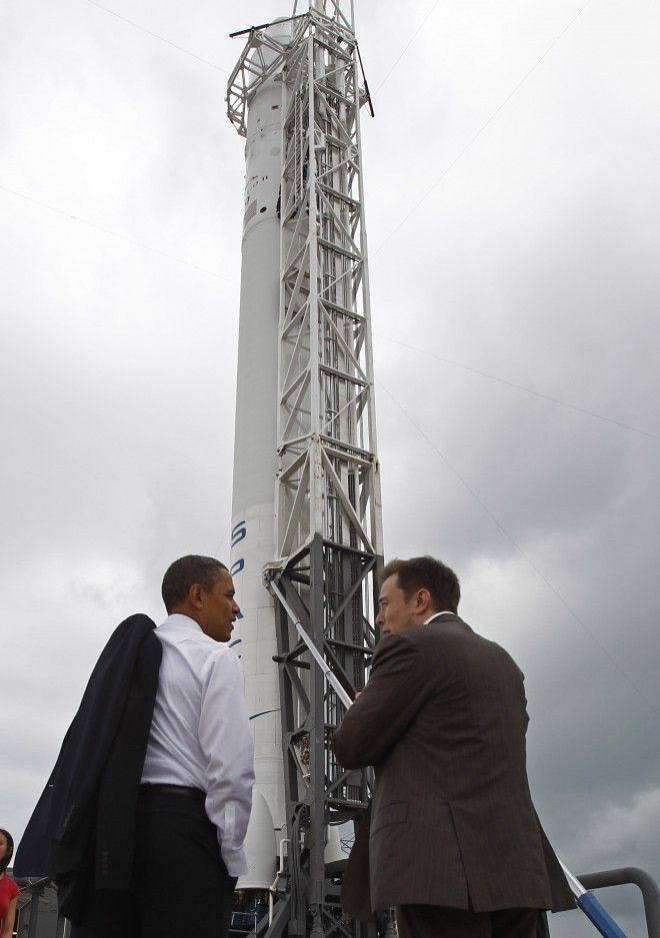Private Space Exploration: The Next Frontier

As NASA wraps up its final mission of the space shuttle program, many are left wondering what will come of space exploration.
The probable answer? The private sector.
Even NASA is in on it, as the agency recently awarded contracts to companies like Lockheed Martin to built new age spacecrafts. Other companies like Blue Origin, Sierra Nevada Corporation, Space Exploration Technologies (SpaceX) and The Boeing Company were awarded NASA contracts as well.
With NASA's support, SpaceX will be ready to fly its first manned mission in 2014, SpaceX CEO and Chief Designer Elon Musk said recently.
SpaceX is working on a spacecraft it has called the Dragon. The company says it can carry seven astronauts at a time to the space station at a cost of $20 million a seat. Spacex's Falcon 9 became the first non Shuttle rocket to be man-rated for space exploration in 2010.
Like NASA, the company even has its sights set on Mars. While NASA is looking to send a man to Mars by the 2030s, Musk says it can happen in 10-20 years.
Other companies are similarly looking at private space exploration. Space Adventures President Tom Shelley said the company has already sent seven private citizens into space on eight missions and has plans for much more.
We were the first company to arrange for a private citizen to fly into space when we sent Dennis Tito up into space in 2001, Shelley said. We were the start of the private space industry and I think over the next few years you'll see space travel dominated by private companies sending more and more people into space.
Space Adventures uses Russian Soyuz spacecraft to travel into space. However, in has already partnered with Boeing to sell seats on future Boeing spacecraft trips.
The Common Man and Space
There are essentially two types of space travel packages for the common man. There is the super expensive and time costly one: approximately $50 million for a trip to the international space station and lots of training. While some people may do that option, he says it's likely that people will do the cheaper one.
The sub-orbital space flight costs about $110,000. You go 110 kilometers above the earth's surface, you see the curvature and beauty of the earth, spend about five minutes there floating in weightlessness and then go back down, Shelley said.
He says space travel will eventually become affordable to the common man but it will be a few decades before it's as low as something like a transcontinental flight.
It's because of physics, gravity is holding us down, he said.
Shelley is among the many which look to create a space tourism industry. There are also other private companies looking to get into space all on their own without help from NASA. Billionaire mogul Richard Branson is one of the men leading this charge with his company Virgin Galactic. In a previous interview with CBS News, Branson said he was inspired by the moon landing.
It was one of those momentous moments in your life. I was absolutely sure I would go to the moon sure thereafter and the years ran by, it seemed clear NASA hadn't really got a big interest in sending you or me or Joe Public up into space, and so I was determined to do something about it, Branson said.
To Shelley, there will be a scientific element to private citizens going into space. He sees private space stations being built and companies paying for citizens to conduct experiments while there.
The biggest mission for private space explorers will be Mars but the one that's closest to happening? The moon. It's been a while since man has been close to the moon but Shelley and Space Adventures are looking to get back there.
We've sold one ticket for the mission and we need to sell another to get it going. Once we do, it will be about three years of training but the next person who is even close to the moon will be a private citizen. That's pretty cool, Shelley said.
Follow Gabriel Perna on Twitter at @GabrielSPerna
© Copyright IBTimes 2024. All rights reserved.




















